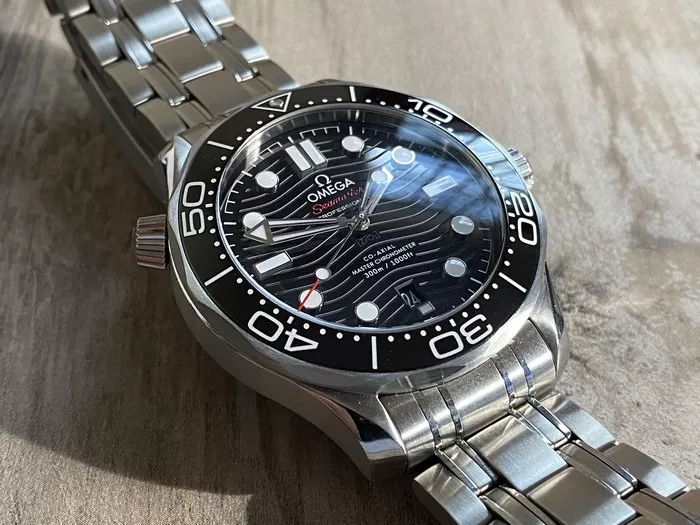Omega is a prestigious brand in the watch industry, known for its innovation, accuracy, and luxury. However, the question of whether Omega watches are overpriced is frequently debated among watch enthusiasts, collectors, and consumers. This article explores various aspects of Omega watches, including their pricing, value proposition, market positioning, and comparisons with other luxury watch brands.
Historical Background of Omega
Omega, founded in 1848 by Louis Brandt in Switzerland, has a rich heritage. Known for its pioneering spirit, Omega introduced several groundbreaking innovations in horology. The brand gained prominence with achievements such as being the official timekeeper for the Olympics and the first watch on the moon.
Factors Influencing Omega’s Pricing
1. Brand Heritage and Legacy
Omega’s long history contributes significantly to its pricing. The brand’s legacy includes historic achievements and a reputation for quality, which adds value to its watches. The prestige associated with Omega can justify higher prices compared to lesser-known brands.
2. Craftsmanship and Quality
Omega watches are renowned for their craftsmanship. The brand employs skilled artisans and advanced technology in the manufacturing process. High-quality materials, such as Swiss-made movements, premium metals, and durable designs, contribute to the overall cost of Omega watches.
3. Innovative Technology
Omega is known for incorporating advanced technology into its timepieces. Innovations like the Co-Axial escapement, which reduces friction and increases accuracy, and anti-magnetic properties in recent models, add to the development costs and influence pricing.
4. Limited Editions and Special Releases
Limited edition models and special releases often come with a higher price tag. Omega occasionally produces watches in limited quantities, which can create exclusivity and increase demand. These factors contribute to the perceived value and pricing of these timepieces.
Comparative Analysis with Other Luxury Brands
1. Omega vs. Rolex
Rolex and Omega are two of the most recognizable names in luxury watches. While Rolex is often perceived as a status symbol and tends to have higher resale values, Omega offers competitive pricing for similar features and quality. Comparing models like the Omega Seamaster to the Rolex Submariner highlights differences in pricing and brand positioning.
2. Omega vs. Patek Philippe
Patek Philippe is another prestigious brand, often considered to be in a higher price range compared to Omega. Patek Philippe watches are known for their intricate craftsmanship and exclusivity. Omega, while also high-end, tends to be more accessible in terms of pricing.
See Also: How To Manual Wind Omega Speedmaster
Market Position and Consumer Perception
1. Omega’s Market Strategy
Omega positions itself as a luxury brand with a focus on both innovation and tradition. The brand’s pricing strategy reflects its market positioning, aiming to appeal to a broad range of consumers from enthusiasts to collectors.
2. Consumer Reviews and Opinions
Consumer opinions on whether Omega watches are overpriced vary. Many appreciate the brand’s balance of quality and affordability, while others may view the pricing as high in comparison to other luxury brands with similar features.
Value for Money
1. Durability and Longevity
Omega watches are designed to be durable and long-lasting. The use of high-quality materials and advanced technology ensures that these timepieces can withstand the test of time. This longevity can justify the initial investment.
2. Resale Value
While Omega watches do not always retain their value as well as some other luxury brands, they generally offer reasonable resale values compared to lower-tier brands. Limited editions and popular models may have better resale potential.
Conclusion
Determining whether Omega watches are overpriced involves considering various factors, including brand heritage, craftsmanship, innovation, and market positioning. While Omega watches may be priced higher than some other brands, their quality, technology, and legacy often provide value that justifies the cost. Ultimately, whether Omega watches are perceived as overpriced can depend on individual preferences, budget, and appreciation for the brand’s unique attributes.
FAQs
1. Are Omega watches worth the investment?
Omega watches are generally considered a good investment due to their quality, heritage, and durability. The brand’s innovation and craftsmanship offer significant value.
2. How does Omega’s pricing compare to other luxury watch brands?
Omega’s pricing is competitive with other luxury brands like Rolex and Patek Philippe. While Omega may be more accessible in terms of price, other brands may offer higher exclusivity.
3. What factors contribute to the high price of Omega watches?
Factors include brand heritage, craftsmanship, innovative technology, and limited editions. These elements contribute to the overall cost and value of Omega watches.
4. Do Omega watches hold their value over time?
Omega watches generally hold their value reasonably well, with certain models and limited editions having better resale potential.
5. How does Omega ensure the quality of its watches?
Omega ensures quality through rigorous testing, high-grade materials, skilled craftsmanship, and advanced technology. The brand’s commitment to excellence contributes to its pricing and value.


